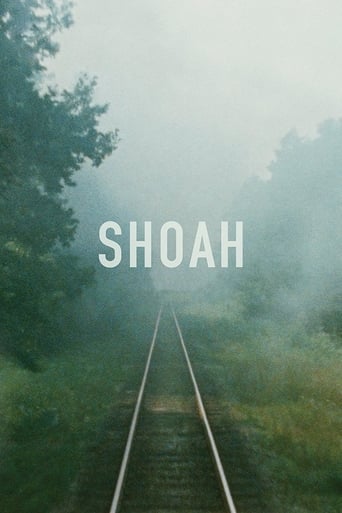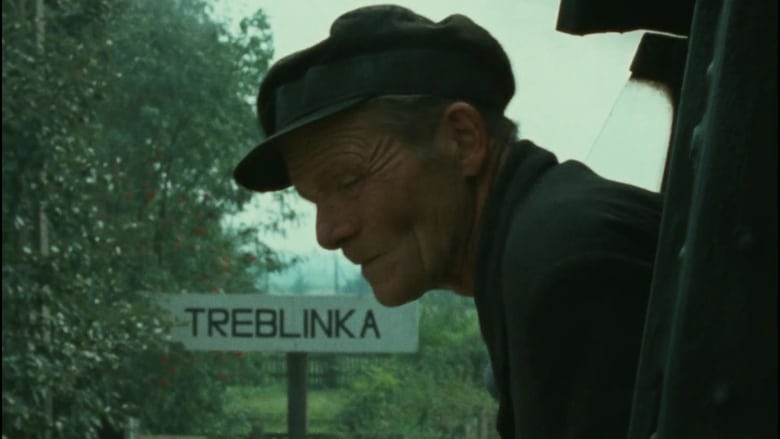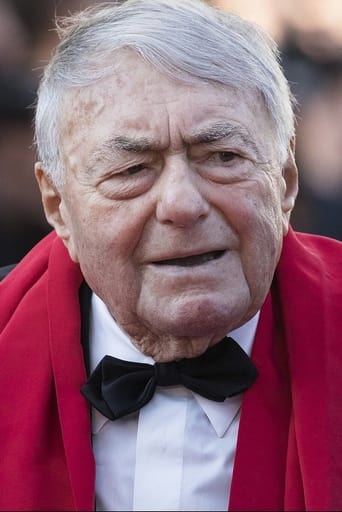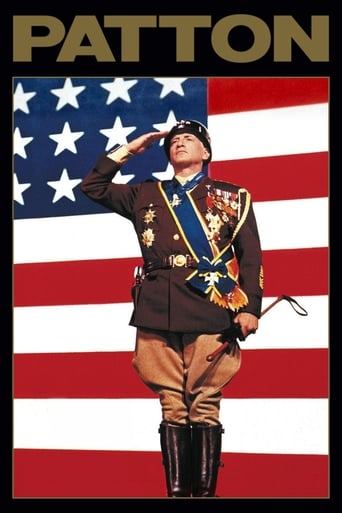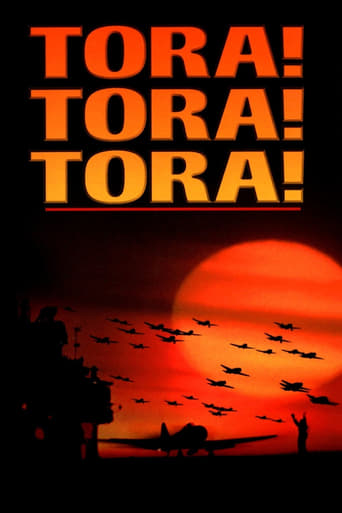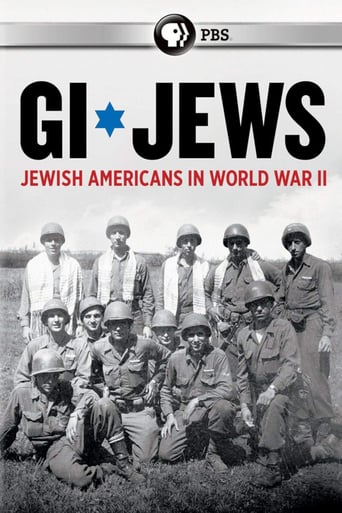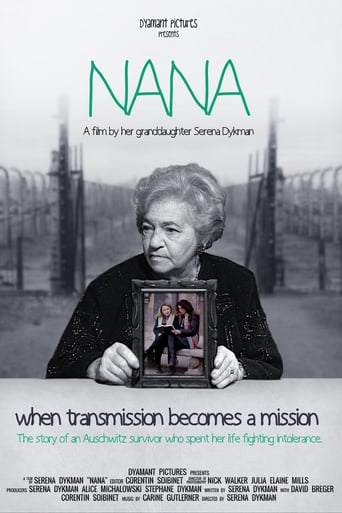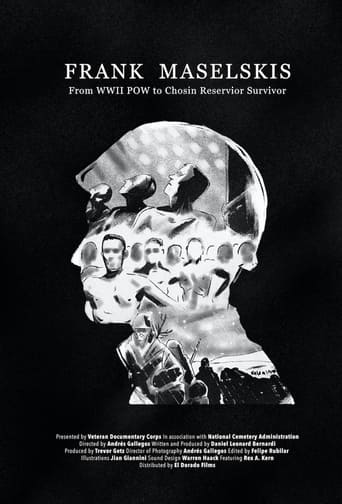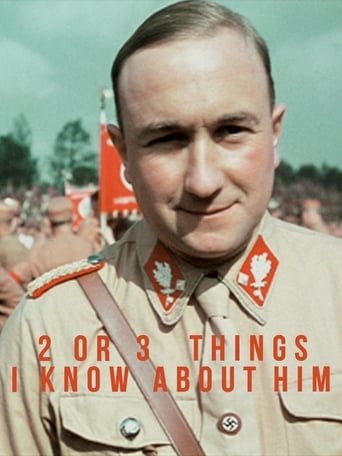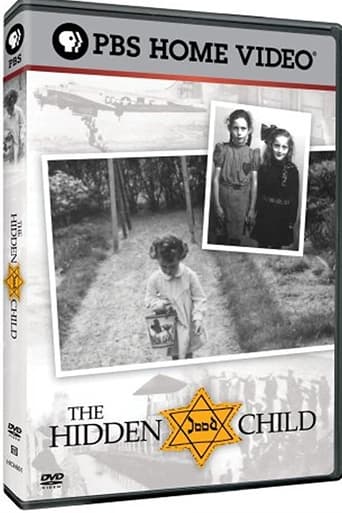Shoah (1985)
Director Claude Lanzmann spent 11 years on this sprawling documentary about the Holocaust, conducting his own interviews and refusing to use a single frame of archival footage. Dividing Holocaust witnesses into three categories – survivors, bystanders, and perpetrators – Lanzmann presents testimonies from survivors of the Chelmno concentration camp, an Auschwitz escapee, and witnesses of the Warsaw Ghetto Uprising, as well as a chilling report of gas chambers from an SS officer at Treblinka.
Watch Trailer
Cast
Similar titles

Reviews
I like the storyline of this show,it attract me so much
Powerful
I like movies that are aware of what they are selling... without [any] greater aspirations than to make people laugh and that's it.
In truth, there is barely enough story here to make a film.
To me "Shoah" represents an inversion of the other canonically revered Holocaust documentary, Resnais's ''Night and Fog". Resnais's short film has always made me a tad uncomfortable. Of course watching it, with its excerpts from films made by the Nazis documenting their own murders, is a powerful, even unforgettable experience. Yet, I always thought that Resnais was in a way blackmailing his audience into being "moved" by his film. In showing images of the murders, he is not only displaying the victims in ways the victims cannot give their consent towards, he is also trying to make the audience say they have "seen" and understood the horror. This, it seems to me, is Resnais attempting to put his audience (and himself) in a position of "safe understanding" of the holocaust, like "been there, seen that". The very sense of horror provoked by the film nonetheless protects the viewer from any sense of incomprehension. It provides an easily defined experience of revulsion.Shoah, shot entirely in the "present" of people who lived through the Holocaust as prisoners, Nazis, or witnesses, operates on a more poetic level. In a way it is not even a documentary on the Holocaust itself but a documentary about coping with the memory of disaster in the present. The disaster cannot be shown, and it cannot really be described. The stories one hears in the film are very moving, but part of what is so powerful about them is the way the speakers struggle to articulate their experience or convey their emotions. At times, Lanzmann's interviews even seem a bit sadistic, like he is forcing the speakers to reveal their pain, but I think part of what is great about Shoah is that it has no pretension to being a "healing'' work. Rather, in pointing to how any attempt to understand history, and particularly its disasters, can only be partially successful, partially remembered, Lanzmann does not shield himself, or the viewers of the film from the sense that the helplessness of the Other always strips the self of its own sense of empowerment, its ability to speak to or help or understand the Other.On a historical level, the most interesting point for me was how much time and effort the Nazis devoted to the cover up of their crimes. I always had an image in my mind of the Nazi elite, and indeed many of the true-believing populace, being so ideologically fanatical that they didn't care who found out about the death camps because they truly believed they were doing good by "purifying" humanity. But everything here indicates that the regime's greatest fear was that anyone would find concrete evidence of the genocide. What at times almost operates as a kind of sick black comedy, however, is how much effort went into concealing the mass murders, and yet how utterly blatant it is that everyone knew what was happening to those herded to the camps.I'm a bit amused by critics who lavish praise on the film by saying that, despite its subject matter, it is ultimately "life affirming" and "humane." It seems to me that they have to say this if they are to laud the film, or they themselves will not seem "humane". I, for one, do not see it as, in any way whatsoever, a "warm" work. The Nazis interviewed in the film all seem like what they were- bureaucrats or yes-men who did their jobs to make their living. In Nazi Germany, mass-murder was an industry where many people made livelihoods. The most terrifying presences in the whole film are resistance fighters whose greatest joy in life was killing Nazis. One still feels an insatiable hatred towards humanity coming from them. One of the men's statement, "Lick my heart, you'd die of poison," is, for me, one of the greatest lines in all cinema, and the words I would use to summarize the experience of watching "Shoah." I must express my one and only displeasure with the film. No where in its nine and a half hours does Lanzmann interview or even mention any of the non-Jewish categories of people targeted for extermination by the Nazis. Watching this, you wouldn't even know that Roma, homosexual, and physically and mentally handicapped people were also slaughtered in the camps. These omissions fit nicely with Lanzmann's Zionist ideology, but that only underscores, I think, that this is a great work, but not a humanitarian one.
1001 Movies You Must See Before You Die is a very reliable reference book featuring some good choices, and I saw this film both for that reason, and because of the length. This documentary from director Claude Lanzmann focuses on the horrific events during the Holocaust, where over six million Jewish people were exterminated. He interviews all the people that are still alive during this time in the Second World War who witnessed parts of if not all of it, including traumatised survivors, people living near the death camps, and very controversially, ex-Nazis who only agreed to be heard but are secretly filmed. We see these people speaking the director's language of French, but there is also some German and Polish language amongst, and some translated on the spot by the director's translator, but don't worry, there is some English too. We see all the locations of death camps and train lines leading to them, e.g. Auschwitz, Chelmno, as they look in the present (sometimes covered in snow, but no matter). What makes this documentary really interesting besides the stories of the people interviewed, is the fact that not one single frame of archive footage (if any exists) is used to portray the horror of these times. At about nine and a half hours long, you may struggle to keep our eyes open throughout the entire thing, but at the same time, you want to hear about these unimaginably horrific incidents. If if it wasn't so long I may give it a slightly higher rating, but don't worry, I don't deny the critics are right to give it five stars, the director did take a decade to complete his film, so it is a must see documentary. It won the BAFTAs for the Flaherty Documentary Award and the Flaherty Documentary Award (TV). Very good!
Shoah is without a doubt,one of the most powerful documentaries dealing with the thorny subject of the Holocaust you'll ever see. Unlike previous documentaries such as 'The Sorrow & The Pity',there is absolutely not frame one of any Holocaust victims on display,but the testimonies of those who were directly & indirectly involved with the Holocaust,through interviews. The film was shot over a period of several years,and hundreds of interviews,as well as present day footage of some of the surviving camps,such as Dauchu,that have been preserved as a reminder of the horror that happened,and should never happen again (although sadly does,even in this day & age in other countries & cultures). As a result of this, the film clocks in at nearly ten hours. Most cinemas that have had the bravura to screen 'Shoah' has either screened it in two parts (as the version that I saw in it's initial U.S. release),or in the case of New York's Film Forum,which has two screens,ran each part in separate cinemas, in staggered screenings with staggered times). This is a film that will generate deep conversation with any audience that sees it,as well as controversy. This film is not rated by the MPAA,but contains graphic & disturbing testimony of Nazi war atrocities that will haunt the viewer for a long time afterward. Not a good choice for very young children,but older teens that are interested in studying the Holocaust should see it.
Most educated people know the facts about the Shoah--we learned them in school, we've seen the documentary footage of the liberation of the camps, we've read Wiesel or seen "Schindler's List." I don't think anything prepares us for the devastation we feel watching Lanzmann's remarkable film, a unique and irreplaceable document of the attempted extinction of European Jews by the Nazis during WWII. This film lasts a long time, true. But when you think of the hours and hours of harrowing testimony that ended up on the cutting room floor, and the intense anguish Lanzmann must have felt about which interviews to include and which to leave out, it is easy to understand why it is this long. It has to be--the length of the film makes the viewer understand that the recounting of the holocaust is eternal, never-ending. The film could last 100 hours, or a thousand.Now, with the advent of the DVD and superior home viewing equipment, we have the ability to watch it over the course of several viewings. I am sure that there is something to be gained by watching the whole thing at one go--but can one read "War and Peace" in one sitting? Does that mean that we shouldn't read it or that it shouldn't exist? Complaints about this film being too long just don't make any sense.Lanzmann has some brilliant touches--at the beginning of the film he institutes a reverential silence by having a long preparatory text scroll down, forcing the viewer to read, to engage in the subject matter that the film will present. Then we hear the singing of Simon Srebnik, and disembodied voices in Polish, and we are there--not in the Chelmno of the War, but Chelmno as it is now. Lanzmann refuses to use documentary footage with voice-over--he is not here to reinterpret old information, but to extract testimonies from those people who are here, now, and who experienced the Shoah then. The film is a fascinating study of memory, of the desire to forget, and the necessity to testify to what happened.If the length seems daunting to you, try watching the first 15 scenes--they last all of 35 minutes, and I doubt you will feel that you want to stop watching after feeling the force and power of Lanzmann's film.
